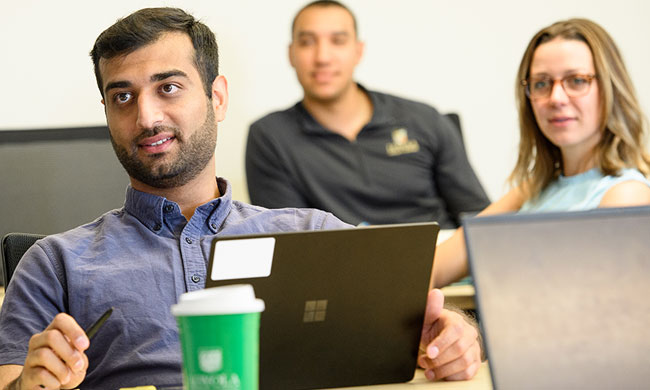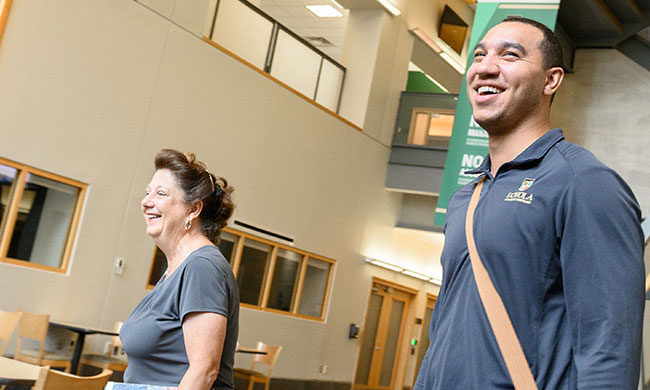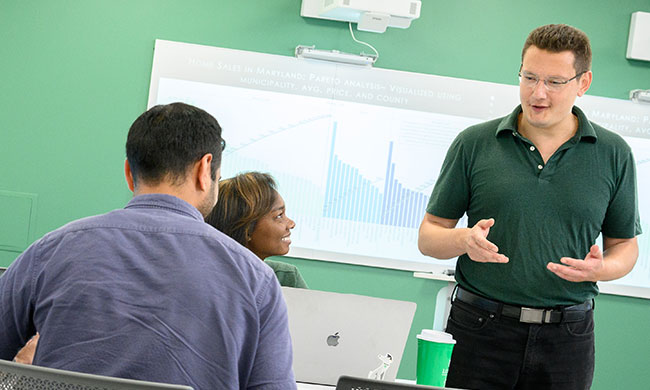Learning Goals and Objectives
Goal 1: Knowledge Acquisition; Students shall develop competency in the functional areas of accounting.
- Objective 1.1: Demonstrate an appropriate mastery of the knowledge, skills and tools of financial accounting principles and managerial accounting principles.
- Objective 1.2: Demonstrate an appropriate mastery of the knowledge, skills and tools of cost accounting.
- Objective 1.3: Demonstrate an appropriate mastery of the knowledge, skills and tools of intermediate and advanced financial accounting topics.
- Objective 1.4: Demonstrate an appropriate mastery of the knowledge, skills and tools of auditing and systems.
- Objective 1.5: Demonstrate an appropriate mastery of the knowledge, skills and tools of federal income taxation.
Goal 2: Critical Thinking Skills; Students shall develop the ability to identify and evaluate accounting problems and arrive at reasoned conclusions.
- Objective 2.1: Demonstrate competency in applying course knowledge to analyze and successfully solve course specific problems.
Goal 3: Research And Communication Skills; Students shall develop the ability to utilize financial and other authoritative databases and effectively present findings in written format.
- Objective 3.1: Demonstrate competency in utilizing the Accounting Codification System (financial accounting resource data base) to search for authoritative answers to specific financial accounting issues.
- Objective 3.2: Demonstrate competency in utilizing tax resource databases to search for tax authority (primarily Internal Revenue Code provisions) to answer specific federal income taxation questions.
Goal 4: Ethics and Professional Responsibility; Students shall develop the ability to recognize and respond appropriately to professional, ethical, and regulatory issues in accounting.
- Objective 4.1: Demonstrate the ability to identify ethical issues in managerial accounting and apply the appropriate ethical principles and rules to make ethical business decisions.
- Objective 4.2: Demonstrate the ability to identify ethical issues in cost accounting and apply the IMA code of ethics (principles and rules) to make ethical business and professional decisions.
- Objective 4.3: Demonstrate the ability to identify ethical issues in auditing and apply the appropriate AICPA code of professional responsibility (including PCAOB principles and rules) to make ethical business and professional decisions.
Request Information
Undergraduate Programs
Loading...
Graduate Programs
Loading...
Explore our Programs
Preparing the next generation of business leaders
Undergraduate Programs 8 majors, 7 minors, 11 fields of study
Discover the difference of a business education grounded in the liberal arts

Professional's MBA Part-time, Self-paced, online and hybrid options, 39 credits
Designed for a range of working professionals looking to pursue their MBA at their own pace

Emerging Leaders MBA Full-time, 12 months, 45 credits
A cohort program designed for recent college graduates and early career professionals

Master of Accounting Full-time, 10 months, 30 credits
Designed for those with an accounting bachelor’s degree, or equivalent coursework